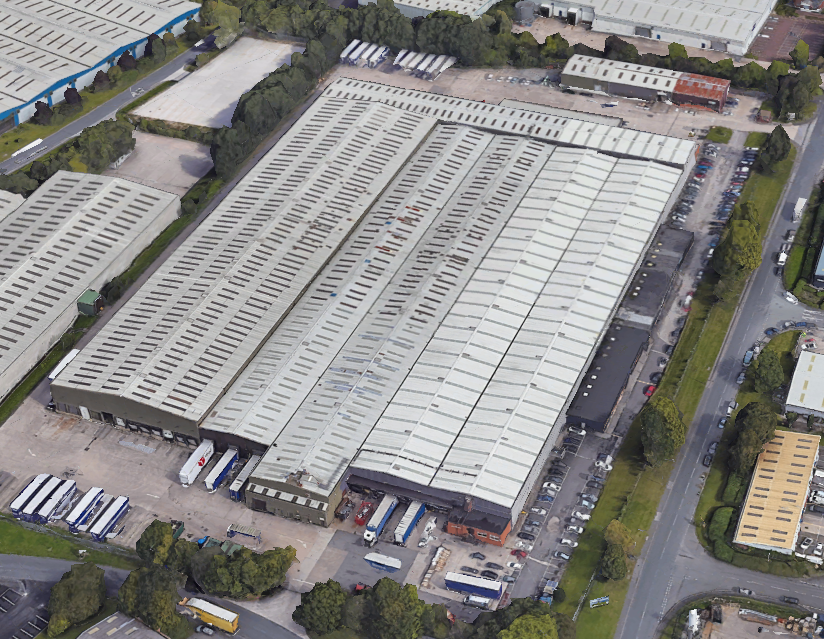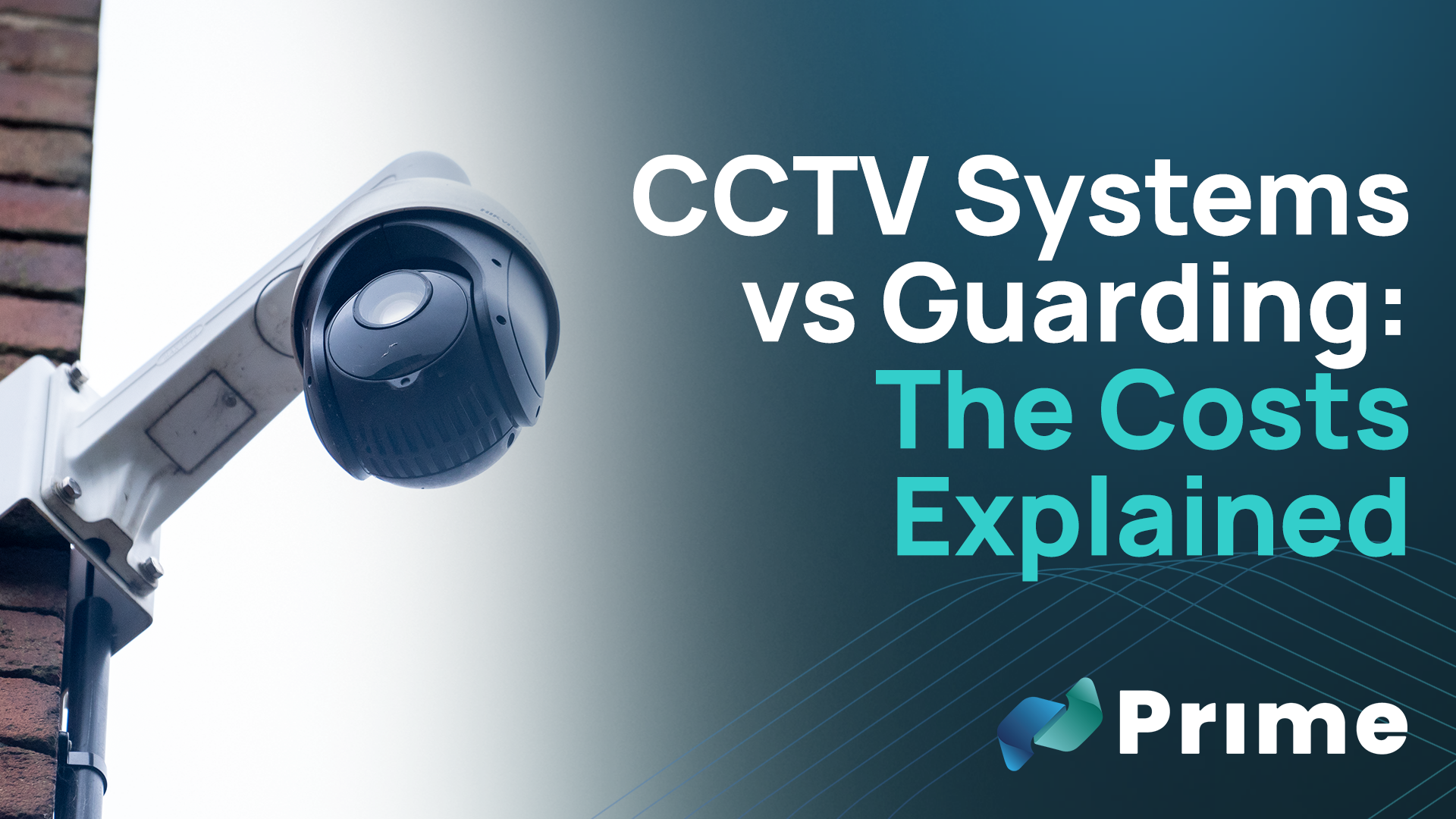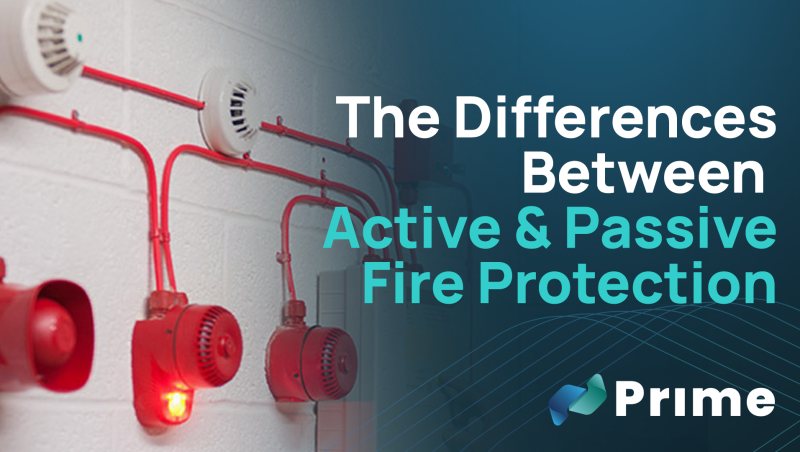Security is a universal concern for all industries and sectors across the world. From retail stores to construction sites and everything in between, security is an integral component of organisations. Regardless of an organisation’s size, location, or industry, they all share a common need – the protection of assets, personnel, and sensitive information. When an organisation searches for the best solution to secure their site, they are frequently presented with two primary options – CCTV or manned guarding. However, the driving force behind these decisions often boils down to one crucial factor – cost.
Why use CCTV Systems?
CCTV (Closed-Circuit Television) systems come in all shapes and sizes. They utilise a network of cameras, such as Bullet CCTV cameras, Dome CCTV cameras, and Pan Tilt and Zoom (PTZ) cameras, that are strategically placed throughout a property to monitor and record activities in real-time. With advanced features such as, artificial intelligence video analytics, motion detection, night vision, and remote access, CCTV systems provide continuous surveillance with minimal human intervention. While the initial investment may be significant, the long-term benefits of round-the-clock monitoring and the cost-effectiveness often outweigh the upfront costs.
CCTV systems offer a versatile and technologically advanced solution for security. The advantages include:
- Continuous Monitoring – CCTV systems provide 24/7 surveillance, ensuring that every corner of your property is monitored round-the-clock, without interruption.
- Visible Deterrence – The presence of CCTV cameras acts as a powerful deterrent against potential intruders and criminals. Knowing they are being monitored, individuals are less likely to engage in criminal activities, ultimately safeguarding the overall security of the site.
- Cost-Effective – While the initial investment of CCTV equipment may be substantial, the cost savings compared to other forms of security, such as manned guarding, is significant, making CCTV systems a cost-effective security solution in the long term.
- Recorded Evidence – Should an incident occur on-site, CCTV provides business owners with recorded evidence that they can present to the authorities, serving as valuable evidence for investigations, insurance claims, and legal proceedings.
However, CCTV systems do have their limitations, and it is important to be mindful of the potential drawbacks when looking to safeguard your assets. The limitations include:
- False Alarms – Modern day CCTV systems use artificial intelligence video analytics which enables the cameras to track, detect, and analyse moving objects. Should the system not be configured correctly, the cameras can be susceptible to false alarms.
- Reliance on Technology – As with any technology-dependent solution, CCTV systems can be vulnerable to technical glitches, power outages, and system failures. These vulnerabilities can lead to disruptions in monitoring operations and compromise the security of the site.
- Maintenance – While CCTV systems may offer long-term cost-effectiveness, they require regular maintenance to ensure optimal performance. Failure to maintain the system adequately can lead to malfunctions or gaps in surveillance coverage.
Why use Security Guards?
As every business premises is different, sometimes a physical presence is required to effectively safeguard the site. Manned guarding involves deploying trained and licensed security personnel on-site, providing a visible and tangible deterrent to potential threats. This human element can bring a sense of reassurance due to the immediate intervention capability of security guards in addressing security breaches or suspicious activities in real-time. Additionally, the presence of a security guard enables a direct line of communication with stakeholders and the public, enabling prompt responses to enquiries or emergencies.
Security Guards provide business and organisations with a litany of benefits, such as:
- Immediate Intervention – One of the most significant advantages of security guards is their ability to provide immediate responses to security guards. Trained security personnel can swiftly intervene, assess the situation, and take appropriate action to mitigate risks, providing peace of mind for all stake holders involved.
- Flexible – Security guards offer adaptability to the distinctive needs of each site they safeguard. With premises varying in layout and potential vulnerabilities, security guards can be customised to precisely address specific threats. This flexibility empowers security guards to tailor their approach, ensuring a proactive and effective security presence tailored to the unique requirements of each location.
- Visible Deterrence – The presence of a security guard acts as a powerful deterrent against potential thieves and intruders. When uniformed guards patrol, especially in marked security vehicles, their visibility alone can discourage would-be intruders, significantly lowering the risk of security breaches.
- Conflict Resolution – Trained security guards possess conflict resolution skills essential for de-escalating tense situations and diffusing confrontations effectively. Their ability to handle disputes calmly and professionally minimises the risk of violence or disruption, maintaining a safe and secure environment for all.
On the other hand, security guards do have some drawbacks:
- Human Error – No matter their level of training and experience, security guards remain prone to human error. From lapses in judgement to distractions, and fatigue, human error can compromise the integrity of site security and leave premises exposed to threats.
- Costs – Security guards can be quite expensive when compared to other security measures such as CCTV, with hourly rates often exceeding £20per per, per guard. These costs can accumulate quickly, especially for businesses requiring continuous security coverage or multiple guards to patrol a large site.
- Limited coverage – While security guards provide a physical presence on-site, their coverage may be limited to specific areas or shifts. This limitation can result in gaps in coverage, leaving certain areas or times vulnerable to potential security breaches.
The Costs Explained
Below, we take a look at two examples to highlight the options and costs for each scenario:
Site One Large Storage Warehouse – 306,000 sqft
Cost comparison of manned guards vs fixed CCTV system vs combined:

Option 1 – 3 x SIA licensed guards
Approximately £40,000 per month
Option 2 – 45 camera monitored fixed system
Approximately £55,000 supply & installation, monitoring £360 per month, maintenance, £1,000 annually.
Option 3 – 1 x SIA licensed guard & 20 camera fixed CCTV system
Approximately £13,000 per month plus £20,000 supply and installation, £150 per month monitoring, and £1,000 annual service
Site Two – Large Vacant Manufacturing Facility – 110,000 sqft
Cost comparison of manned guards vs temporary-fixed CCTV system vs combined:

Option 1 – 2 x SIA licensed guards
Approximately £28,000 per month
Option 2 – 25 camera temporary-fixed CCTV system
Approximately £2,000 per month plus install and decommissioning £2,000
Option 3 – 1 x SIA licensed guard & 12 camera temporary-fixed CCTV system
Approximately £13,000 per month (guard) plus £1,000 per month (CCTV), and install and decommissioning £1,000
Option 1 – Manned Guarding Solution – This solution provides a physical presence on-site, offering immediate response capabilities and a visible deterrent to potential threats. The presence of SIA licensed guards can provide reassurance to occupants and stakeholders, particularly in high-risk environments. However, it is the most expensive option and may have limitations in terms of coverage and scalability.
Option 2 – Technical Security Solution – Utilising CCTV systems, whether fixed or temporary-fixed, for monitoring and surveillance provides a cost-effective alternative to manned guarding. These systems provide continuous coverage and detailed documentation of activities on-site, deterring potential threats at a fraction of the cost of employing security guards.
Option 3 – Blended Security Solution (manned guards supported by tech) – Combining manned guards with technical security measures such as CCTV systems offers the best of both worlds. By supplementing the physical presence of guards with surveillance technology, this option provides comprehensive security coverage while optimising costs. This blended approach maximises the effectiveness of security measures, enhancing response capabilities and capturing evidence should incidents happen on site.
Conclusion
When deciding what measures to use to safeguard your business, property, or assets, both CCTV systems and security guards offer unique benefits and play integral roles in comprehensive security strategies. The decision to deploy one or the other, or a combination of both, depends on various factors, including the nature of the business, budgetary constraints, and specific security needs.
Here at Prime we provide a myriad of security solutions that safeguard people, property, and assets. Whether you require round-the-clock monitoring with CCTV systems, the reassuring physical presence of a security guard, or a combination of both, our comprehensive security solutions are tailored to fit your budget and your unique requirements. Get in touch today and let our expert team create a bespoke security strategy to protect what matters most to you.




